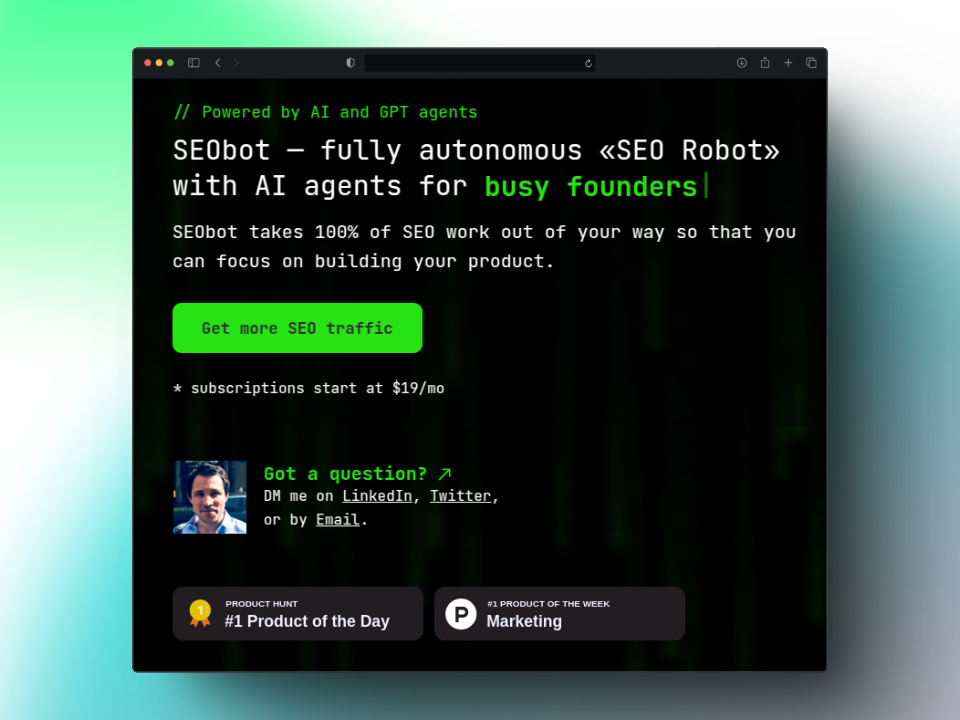It sounds like you're interested in AI agents that are incredibly advanced and capable. Here are 6 examples that are pushing the boundaries of what's possible:
-
OpenAI's GPT-4: This is a large language model that can generate text, translate languages, write different kinds of creative content, and answer your questions in
1 an informative way.2 It's so good at understanding and responding to prompts that it can be difficult to distinguish its output from human-written text. -
DeepMind's AlphaGo: This AI agent is designed to play the game Go, a complex board game that requires strategic thinking and intuition.
3 AlphaGo has defeated professional Go players, demonstrating its ability to master complex tasks and make decisions in a dynamic environment.4 -
Google's LaMDA: This is another large language model that is designed for dialogue.
5 It can engage in conversations that are natural and engaging, and it can even generate creative text formats, like poems, code, scripts, musical pieces, email, letters, etc.6 -
Microsoft's Tay: This AI chatbot was designed to interact with people on Twitter.
7 While it had some initial hiccups, it demonstrated the potential for AI agents to learn and adapt through interaction with humans.8 -
Amazon's Alexa: This is a virtual assistant that can respond to voice commands, play music, set alarms, and control smart home devices.
9 Alexa is constantly learning and improving, making it an increasingly useful tool for everyday tasks.10 -
Tesla's Autopilot: This is an advanced driver-assistance system that can automate many aspects of driving.
11 While it's not fully autonomous, it can handle tasks like lane keeping, adaptive cruise control, and even self-parking.
These are just a few examples of the many AI agents that are being developed today. As AI technology continues to advance, we can expect to see even more sophisticated and capable agents in the future.




